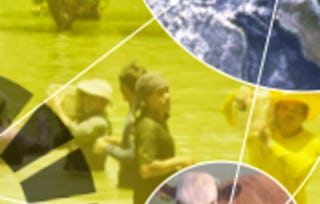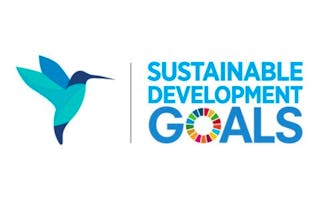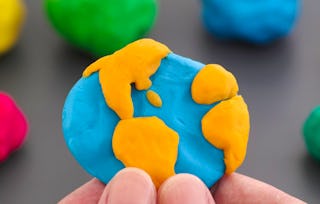The course is designed for people that want to learn about the latest development agenda the international community agreed to achieve by 2030. Structured around the five pillars of Agenda 2030 – people, prosperity, planet, peace and justice, and partnership, students will learn that these pillars are interconnected and need to be integrated in practical policy-making and operational activities for development, in both developed and developing country settings. Following an introductory module on the main concepts of Agenda 2030 and the SDGs, successive modules will provide the foundation behind the SDGs for people, prosperity and planet, peace and partnership. A final module will explore the way forward and provide channels that the young generation can participate to integrate the SDGs in the policy-making of the students’ resident countries.

Sustainable Development in the 21st Century with Ban Ki-moon

Sustainable Development in the 21st Century with Ban Ki-moon

Instructor: Ban Ki-moon
30,025 already enrolled
Included with
(262 reviews)
Skills you'll gain
Details to know

Add to your LinkedIn profile
See how employees at top companies are mastering in-demand skills

There are 7 modules in this course
In this first module, you will be introduced to the overall concept and elements of the 2030 Sustainable Development Agenda. The 2030 Agenda for Sustainable Development has been an integral part of the global development agenda. The Sustainable Development Goals (SDGs) embraced the nature and characteristics of the Millennium Development Goals (MDGs) but produced a more comprehensive goal for all. We will breakdown the five key elements: People, Planet, Prosperity, Peace and Partnership. We will also examine each of the 17 Goals of the 2030 Sustainable Development Agenda.
What's included
11 videos6 readings1 assignment1 discussion prompt
Within the SDGs, ending poverty remains a central objective of international development efforts. In Week 2, we will be looking at the concepts of poverty. The aim of this week is to examine different approaches to defining and measuring poverty and inequality and to understand the impact of global distribution of poverty. The causes and impacts of poverty such as unequal distribution of resources and power will also be discussed. Later, we will be looking at how the interrelationship between poverty and other issues, such as global health systems, hunger, gender equality and education will have an impact on the level of poverty. Furthermore, we will look into a specific case study of Bahrain’s health care reform.
What's included
13 videos8 readings1 assignment1 discussion prompt
In Week 3, we will have a more detailed look at the scientific evidence that human activities are influencing the Earth at the planetary level. You will be introduced to the concepts of Anthropocene and Planetary Boundaries. The biosphere (all living organisms or “biodiversity”) is arguably just as – or more – important than climate for establishing the environmental conditions we enjoy on Earth, but receives much less attention. Furthermore, we will be examining the mitigation and adaptive options, on the local and global scales, in response to reduced environmental sustainability. Additionally, we will look at the international agreements for climate change and how they seek to meet the goals of the SDGs. Using current global environmental challenges, we will discuss ways in which communities and societies have utilized indigenous knowledge, scientific evaluations, technological innovations, societal regulations and laws, environmental monitoring, and policy prescriptions in environmental management at various scales.
What's included
10 videos7 readings1 assignment1 discussion prompt
Where the last module focused on the activities within the 2030 Agenda to tackle the problems related to the Planet, this week will focus on the prosperity element of the 2030 Agenda for Sustainable Development. Economic development is a key component in any development agenda. You will be analyzing the past trends of economic and political development and will be introduced to examples of how to achieve sustainable economic development. We will touch upon concepts of sustainable economic trends such as social innovation and green jobs, buildings and energy sources.
What's included
8 videos5 readings1 assignment1 discussion prompt
This week we will discuss the 16th Sustainable Development Goal to “Promote peaceful and inclusive societies for sustainable development, provide access to justice for all and build effective, accountable and inclusive institutions at all levels.” This week will cover the concepts of justice, inclusion, peace, global governance and global citizenship and the need for strong institutions.
What's included
11 videos8 readings1 assignment1 discussion prompt
In this last module, we will look into the role of youth in the implementation of the SDGs. While the previous modules focused on the 5 “Ps” in the achievement of the SDGs, this module looks into the importance of tertiary education and the roles that universities play in mainstream education for sustainable development. This module also examines the empowerment and mobilizing of youth to become the enablers of the SDGs.
What's included
13 videos7 readings1 assignment1 discussion prompt
What's included
1 peer review
Instructor

Offered by
Explore more from Governance and Society
 Status: Preview
Status: PreviewUniversity of Copenhagen
 Status: Preview
Status: PreviewErasmus University Rotterdam
 Status: Preview
Status: Preview Status: Preview
Status: PreviewUniversità Bocconi
Why people choose Coursera for their career

Felipe M.

Jennifer J.

Larry W.

Chaitanya A.
Learner reviews
- 5 stars
87.07%
- 4 stars
10.64%
- 3 stars
0.76%
- 2 stars
0.76%
- 1 star
0.76%
Showing 3 of 262
Reviewed on Jul 7, 2020
This is one of the quality course, I have taken so far. This course has lot to offer.
Reviewed on Nov 3, 2020
It was very productive and useful. I got a chance to know more about sustainable development.
Reviewed on May 11, 2018
Excellent video structure, clear content and streamlined approach to this deep topic. Engaging and interesting till the end.

Open new doors with Coursera Plus
Unlimited access to 10,000+ world-class courses, hands-on projects, and job-ready certificate programs - all included in your subscription
Advance your career with an online degree
Earn a degree from world-class universities - 100% online
Join over 3,400 global companies that choose Coursera for Business
Upskill your employees to excel in the digital economy
Frequently asked questions
To access the course materials, assignments and to earn a Certificate, you will need to purchase the Certificate experience when you enroll in a course. You can try a Free Trial instead, or apply for Financial Aid. The course may offer 'Full Course, No Certificate' instead. This option lets you see all course materials, submit required assessments, and get a final grade. This also means that you will not be able to purchase a Certificate experience.
When you purchase a Certificate you get access to all course materials, including graded assignments. Upon completing the course, your electronic Certificate will be added to your Accomplishments page - from there, you can print your Certificate or add it to your LinkedIn profile.
Yes. In select learning programs, you can apply for financial aid or a scholarship if you can’t afford the enrollment fee. If fin aid or scholarship is available for your learning program selection, you’ll find a link to apply on the description page.
More questions
Financial aid available,
¹ Some assignments in this course are AI-graded. For these assignments, your data will be used in accordance with Coursera's Privacy Notice.

